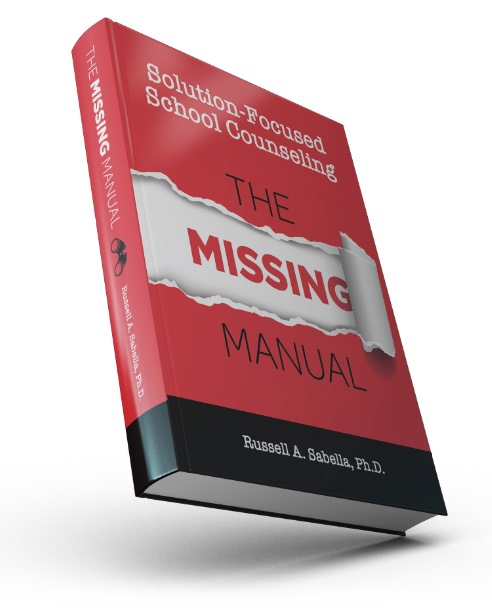School counselors, teachers, and other educators need an approach to working
with children remotely that comes with low-risk and high positive impact. The
Solution-focused brief counseling (SFBC), consultation, and conferences approach
is perfect for the job. SFBC empowers kids and caretakers to navigate the
intense and unpleasant challenges we all face while unlocking their past
achievements and discovering their future potential.
The SFBC approach is perfect for working with others online, even addressing
social and emotional issues, for several reasons:
- SFBC is Low Risk. Because of SFBC's focus on strengths, resources,
and opportunities, the model reduces the importance of confidentiality and
privacy. Students, parents, and others are more apt to speak freely, even in an
online environment.
- SFBC is Structured. Students and school counselors both love how
SFBC is structured, focusing on techniques that are simple and easy to follow.
- SFBC Works. Focusing on students’ assets almost always produces
some return on your investment. SFBC is an approach that can help students
enhance their confidence, believe in their abilities, and do more of what works.
- SFBC is Brief. Being in an online environment is tiring. We need an
approach like SFBC to help us get our work done efficiently.
- SFBC is Adaptable. School counselors and other educators can apply
SFBC in many different situations. For example, school counselors deal with
numerous cases across various domains, including academic, career, social, and
emotional.
- SFBC is Transcultural. The SFBC model embraces diversity because
the focus is on the student’s unique experiences within their own frame of
reference.
- SFBC is Teachable. The solution-focused model also lends itself
well to online classroom lessons, where students can learn a novel approach to
coping, self-regulating, and working out problems on their own. School
counselors can bring the SFBC principles, techniques, and processes to students
starting in elementary schools. Teaching students how to apply SFBC mindsets and
behaviors in their own lives gives them the knowledge, skills, and attitude to
navigate the world better, cope with adversity, and understand their own powers.
The virtual SFBC workshop can be delivered in various formats including a
half-day (3 hours) or full-day (6 hours). We can connect all at once or space
the workshop out over several meetings, whichever works best. If you want to do
a full day and include two or more topics, we can make that happen.
SFBC Workshop Objectives:
- Understand the process of solution-focused scaling.

- Recognize and understand techniques including detailing, mind mapping, mine
fielding, cheerleading, amplifying, and possible reframing/refocusing.
- Recognize and understand how to use the “hypothetical” or exploring future
progress.
- Understand four ways to move from complaints/wishes to SMART goals.
- Understand a technique for how to inspire internal motivation.
- Understand how to conduct solution-focused small groups.
- Understand how to team with all stakeholders (parents, students, and staff)
using the solution-focused approach.
Check out Dr. Sabella's professional development page for other workshop
options at https://schoolcounselor.com/professional-development/
To inquire about doing a SFBC or other workshop, complete this brief online
form to get things started: https://schoolcounselor.com/professional-development/request-a-training/.
Or, please forward this email to the person who coordinates professional
developing for your district, agency, or organization.
Sabella & Associates, LLC
8249 Preserve Point DR,
Fort Myers, FL 33912
sabella@schoolcounselor.com











